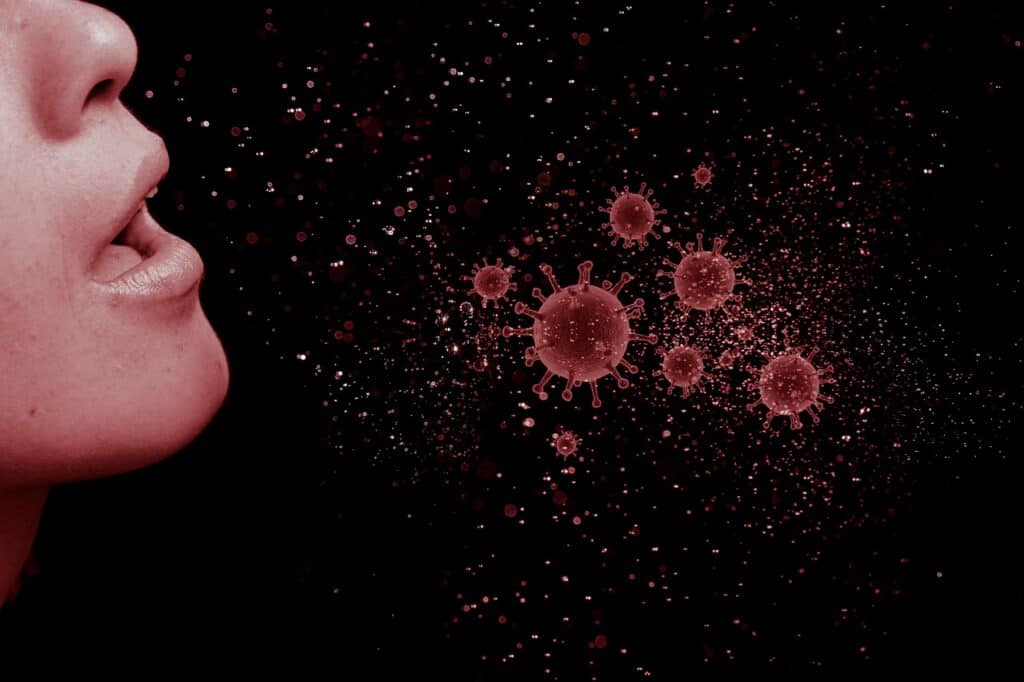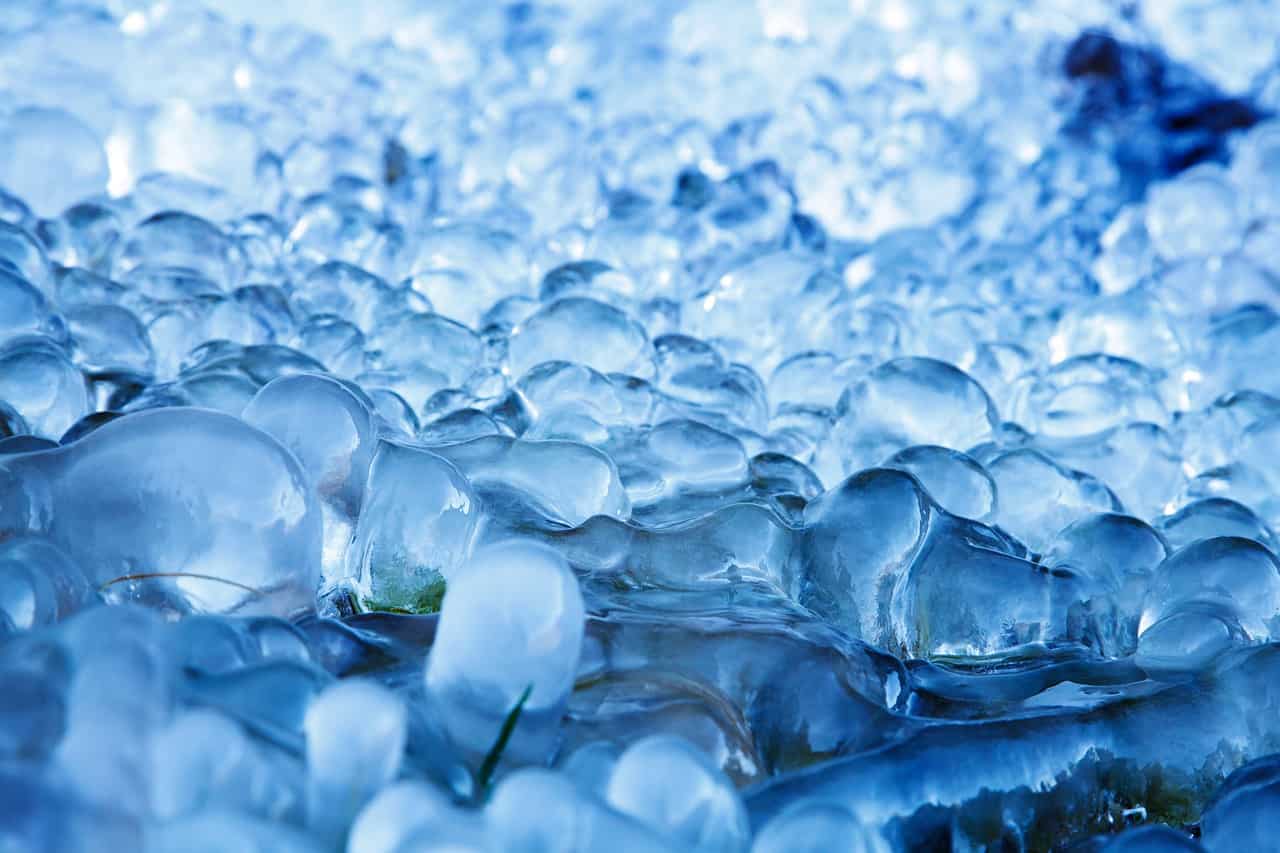Cold water can be super refreshing, especially during those hot summer days. When you are out and about in the sun, a glass of cold water is about the most desirable thing. As quenching as it is, drinking cold water is not always good health-wise.
Cold fluids interfere with the protective lining of the respiratory system -the respiratory mucosa– and this triggers coughs. If you have an existing cough due to a certain respiratory condition, cold water exacerbates the cough.
Also, drinking cold water when you have pneumonia, bronchitis, or allergies, will trigger coughs.

Why You Cough When You Drink Cold Water
Do you get a cough whenever you drink cold water? It should not be cause for alarm as coughing is a natural body reaction.
Even so, it is advisable to see a physician if the cough persists or is accompanied by symptoms such as chest pain and whooping sounds.
The following are reasons why you cough when you drink cold water.
1. You Have an Existing Cough
When you have an existing cough, drinking cold water irritates your throat further. Therefore, the cold will trigger a cough.
The existing cough could be because of a cold or an allergic reaction to something you had encountered earlier. Either way, the respiratory tract is already exposed, and drinking cold water causes an automatic cough reaction.
2. You Are Asthmatic
Asthma is a respiratory condition that is triggered by a cold. While not persistent, coughing is one of the symptoms of asthma.
Therefore, if an asthmatic person takes cold water, there is a high likelihood that they will cough. Cold water increases the rate of breathing and constricts the airways, resulting in a coughing fit.
3. You Have a Throat Infection
As we have mentioned above, the respiratory tract has a protective membrane called the respiratory mucosa. The membrane protects your airways from organisms like bacteria, viruses, and fungi.
When you have a throat infection, it means that the respiratory mucosa has already been compromised. Thus, taking cold water will constrict your throat muscles and inflame them such that you start coughing.
4. You Have Bronchospasm
If you have bronchospasm, it is best to steer off cold water as much as possible. Bronchospasm is a respiratory condition characterized by the tightening of muscles in the bronchi.
Drinking cold water tightens the linings of the bronchi all the more, causing the airways to narrow down. This triggers a cough. If you keep drinking cold water in this condition, your bronchitis could become chronic.
5. You Are Allergic to Cold Drinks
Essentially, drinking cold water once in a while should not be problematic. However, there are people who get a cough every time they drink cold water. If this is the case with you, then you have an allergic reaction to cold water.
For someone that is allergic to cold water, drinking it causes the airways to constrict and throat muscles to spam. Thus, you react by coughing. Usually, you will start coughing as soon as you drink the cold water.
6. There Is Formation of Mucus in The Throat
Drinking cold water causes the formation of mucus in the throat. Coughing removes the mucus and other foreign bodies from your throat. When mucus accumulates in your throat due to drinking cold water, it leads to a coughing fit in an effort to clear the throat.
Sometimes, a postnasal drip occurs, where mucus drips from the back of the throat back to the nose. This is also an effect of drinking cold water. To clear it up, you cough.
Does Cold Air Make People Cough?
Coughing is a natural reaction to inhaling cold air.
Just like cold water, cold air leads to the constriction of the airways. It irritates throat tissues and tightens the lining of the esophagus and larynx. Also, it lowers the temperature of the lungs, which interferes with the optimal functioning of the organ.
To clear the irritation caused by inhaling cold air, people cough. The cough is worse when someone has a cold or a respiratory condition.
For instance, if you suffer from pneumonia, bronchitis, or asthma, it is advisable to stay indoors during winter or whenever it is cold outside.
Breathing cold air may cause intense coughs and intensify your symptoms. Other times, cold air contains pollen, or dust particles, which some people may be allergic to, causing a coughing fit.
To understand the impact of cold air from a doctor’s perspective, here is a video:
How To Relieve a Cough?
The best way to deal with a cough is to prevent it- stay away from situations that could potentially cause a cough. This implies abstaining from consuming and inhaling cold substances.
At times, however, we slip up as humans and find ourselves with a cough. Maybe the cold night crept up on you without warm clothes, or you indulged in some cold water because it was too hot outside.
Fortunately, there are several things you can do to remedy the situation, most of which involve the consumption of anti-inflammatory substances.
1. Take Warm Water
Warm water will undo the effect of cold water. It will ease up the linings of your airwaves and tone down the inflammation of your respiratory tract that was caused by drinking cold water.
Essentially, warm water has anti-inflammatory properties. Drinking a lot of it will help you to recover from your cough. Gargling makes it even more effective.
2. Drink Lemon/Coconut Water
Lemon and coconut water contain anti-inflammatory properties. Therefore, they reduce the irritation in the throat and the whole respiratory tract. Subsequently, they put a stop to coughs if taken adequately.
3. Take Honey
Honey is a natural cough relief. It suppresses coughs and saves you from having to use antibiotics. Swallowing a spoonful of honey every day does the trick and is also inexpensive. Alternatively, you can add honey to a hot drink such as lemon tea or even coffee.
4. Steam
Steam helps to clear the nasal cavity of mucus, which is known to cause coughs. Simply fill a bowl with hot water and let the steam wash over your face.
Alternatively, you could take a hot shower where the bathroom fills with steam and sit in the steam for about ten minutes. Doing this twice a day will loosen the mucus and prevent postnasal drip.
5. Gargle With Saltwater
Put half a teaspoon of salt in warm water and mix it up adequately. Take a sip and let the mixture stay at the back of your throat for almost a minute before spitting it out.
Doing this at least thrice a day will help with your cough. Gargling with salt water eases throat infections and loosens mucus.
6. Use thyme
Many herbs are known to have medicinal values. Thyme is used to remedy coughs, an infected throat, and to ease the symptoms of bronchitis. Mixing this herb with food or warm fluids will help alleviate your cough symptoms.
7. See A Doctor
If the cough is persistent or is accompanied by other symptoms, then you should seriously consider seeing a doctor. So, if you are suffering shortness of breath, a fever, or your cough comes with a wheezing sound, you ought to seek medical care as soon as possible.
In conclusion
Coughing is a reflexive action to an infected or irritated respirational tract. When you take cold water, your airways constrict, and your throat gets infected, causing you to cough.
Also, the cold changes the temperature inside the lungs, and your breathing rate increases.
There are various reasons why someone coughs when they take cold water. One may be allergic to cold water, be asthmatic, or have other prevailing respiratory conditions like pneumonia or bronchitis.
Remedies for coughs include drinking warm water, gargling with salt water, and the consumption of honey, lemon, and coconut water. If the symptoms are not subsiding, it is imperative to seek medical care promptly.





